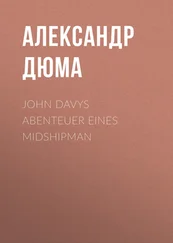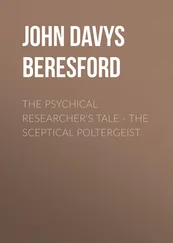John Davys Beresford - The Jervaise Comedy
Здесь есть возможность читать онлайн «John Davys Beresford - The Jervaise Comedy» — ознакомительный отрывок электронной книги совершенно бесплатно, а после прочтения отрывка купить полную версию. В некоторых случаях можно слушать аудио, скачать через торрент в формате fb2 и присутствует краткое содержание. Жанр: foreign_dramaturgy, Драматургия, foreign_antique, foreign_prose, на английском языке. Описание произведения, (предисловие) а так же отзывы посетителей доступны на портале библиотеки ЛибКат.
- Название:The Jervaise Comedy
- Автор:
- Жанр:
- Год:неизвестен
- ISBN:нет данных
- Рейтинг книги:5 / 5. Голосов: 1
-
Избранное:Добавить в избранное
- Отзывы:
-
Ваша оценка:
- 100
- 1
- 2
- 3
- 4
- 5
The Jervaise Comedy: краткое содержание, описание и аннотация
Предлагаем к чтению аннотацию, описание, краткое содержание или предисловие (зависит от того, что написал сам автор книги «The Jervaise Comedy»). Если вы не нашли необходимую информацию о книге — напишите в комментариях, мы постараемся отыскать её.
The Jervaise Comedy — читать онлайн ознакомительный отрывок
Ниже представлен текст книги, разбитый по страницам. Система сохранения места последней прочитанной страницы, позволяет с удобством читать онлайн бесплатно книгу «The Jervaise Comedy», без необходимости каждый раз заново искать на чём Вы остановились. Поставьте закладку, и сможете в любой момент перейти на страницу, на которой закончили чтение.
Интервал:
Закладка:
“It’s very good of you to help me like this, Miss Banks,” he said, “and I’m very grateful to you. I do apologise, most sincerely for dragging you out of bed at such an unholy hour, but I’m sure you appreciate my—our anxiety.”
“Oh! of course,” she agreed, with a look that I thought horribly sympathetic.
I began to wonder if my first estimate of her—based to a certain extent, perhaps, on Jervaise’s admission that she did not like him—had not been considerably too high. She might, after all, be just an ordinary charming woman, enlivened by a streak of minx, and eager enough to catch the heir of Jervaise if he were available. How low my thought of her must have sunk at that moment! But they were, now, exchanging courtesies with an air that gave to their commonplaces the effect of a flirtation.
I distracted my attention. I couldn’t help hearing what they said, but I could refrain from looking at Anne. She was becoming vivacious, and I found myself strangely disliking her vivacity. It was then that I began to take note of the furnishing of the room which, when I considered it, was so peculiarly not in the manner of the familiar English farm-house. Instead of the plush suite, the glass bell shades, the round centre table, and all the other stuffy misconceptions so firmly established by the civilisation of the nineteenth century, I discovered the authentic marks of the old English æsthetic—whitewashed walls and black oak. And the dresser, the settles, the oblong table, the rush-bottomed chairs, the big chest by the side wall, all looked sturdily genuine; venerably conscious of the boast that they had defied the greedy collector and would continue to elude his most insidious approaches. Here, they were in their proper surroundings. They gave the effect of having carelessly lounged in and settled themselves; they were like the steady group of “regulars” in the parlour of their familiar inn.
I came out of my reflection on the furniture to find that Jervaise was going, at last. He was smiling and effusive, talking quickly about nothing, apologising again for the unseemliness of our visit. Anne was pathetically complacent, accepting and discounting his excuses, and professing her willingness to help in any way she possibly could. “But I really and truly expect you’ll find Brenda safe at home when you get back,” she said, and I felt that she honestly believed that.
“I hope so; I hope so,” Jervaise responded, and then they most unnecessarily shook hands.
I thought that it was time to assert myself above the clatter of their farewells.
“We might add, Miss Banks,” I put in, “that we’ve been making a perfectly absurd fuss about nothing at all. But, no doubt, you’re used to that.”
She looked at me, then, for the first time since I had come into the house; and I saw the impulse to some tart response flicker in her face and die away unexpressed. We stood and stared at one another for a long half-second or so; and when she looked away I fancied that there was something like fear in her evasion. It seemed to me that I saw the true spirit of her in the way her glance refused me as some one with whom she did not care to sport. Her voice, too, dropped, so that I could not catch the murmur of her reply.
We had, indeed, recognised each other in that brief meeting of our eyes. Some kind of challenge had passed between us. I had dared her to drop that disguise of trickery and show herself as she was; and her response had been an admission that she acknowledged not me, but my recognition of her.
How far the fact that I had truly appraised her real worth might influence her, in time, to think gently of me, I could not guess; but I hoped, even a little vaingloriously, that she would respond to our mutual appreciation of truth. I had shown her, I believed, how greatly I admired the spirit she had been at such pains to conceal during that talk in the honest sitting-room of the Home Farm. And I felt that her failure to resent the impertinence of my “No doubt, you’re used to that,” had been due to an understanding of something she and I had in common against the whole solid, stolid, aristocratic family of Jervaise.
Moreover, she gave me what I counted as two more causes for hopefulness before we left the house. The first was her repetition, given, now, with a more vibrating sincerity, of the belief that we should find Brenda safely at home when we got back to the Hall.
“I feel sure you will, Mr. Jervaise,” she said, and the slight pucker of anxiety between her eyebrows was an earnest that even if her belief was a little tremulous, her hope, at least, was unquestionably genuine.
The second sign was the acceptance of a hackneyed commonplace; the proffer of a friendly message through the medium of a cliché which, however false in its general application, offered a short cut to the interpretation of feeling. Racquet who had maintained a well-bred silence from the first moment of his mistress’s reproof, had honoured me with his approval while we sat in the farm-house sitting-room, and sealed the agreement by a friendly thrust of his nose as we said “Goodnight.”
Anne did not look at me as she spoke, but her soft comment, “You are fond of dogs,” seemed to me a full acknowledgment of our recognition of each other’s quality.
I must admit, however, that at two o’clock in the morning one’s sense of values is not altogether normal.
III
Frank Jervaise
I should have preferred to maintain a thoughtful, experiencing silence throughout our walk home. I had plenty of material for reflection. I wanted, now, to look at all this disappearing Brenda business from a new angle. I had a sense of the weaving of plots, and of the texture of them; such a sense as I imagine a blind man may get through sensitive finger-tips. Two new characters had come into my play, and I knew them both for principals. That opening act without Brenda, Arthur Banks, or his sister was nothing more than a prologue. The whole affair had begun again to fascinate my interest. Moreover, I was becoming aware of a stern, half-tragic background that had not yet come into proper focus.
And the circumstances of our walk home were of a kind that I find peculiarly stimulating to the imagination. The sky was clearing. Above us, widening pools of deep sky, glinting here and there, with the weak radiance of half-drowned stars, opened and closed again behind dispersing wreaths of mist. While in the west, a heaped indigo gloom that might in that light have been mistaken for the silhouette of a vast impending forest, revealed at one edge a thin haze of yellow silver that stretched weak exploring arms of light towards the mysterious obscurity of the upper clouds. I knew precisely how that sky would look at sunset, but at moonset it had a completely different quality that was at once more ethereal and more primitive. It seemed to me that this night-sky had the original, eternal effect of all planetary space; that it might be found under the leaping rings of Saturn or in the perpetual gloom of banished Neptune. Compared to the comprehensible, reproducible effects of sunlight, it was as the wonder of the ineffable to the beauty of a magnificent picture.
But I was not left for many minutes to the rapture of contemplation. Even the primitive had to give place to the movement of our tiny, civilised drama. Jervaise and I were of the race that has been steadily creating a fiction of the earth since the first appearance of inductive science in the days of prehistoric man; and we could not live for long outside the artificial realism of the thing we were making. We were not the creatures of a process, but little gods in a world-pantheon.
I made no attempt to check him when he began to talk. I knew by the raised tone of his voice—he was speaking quite a third above his ordinary pitch—that he was pleasantly excited by our interview with Anne: an excitement that he now wished either to conceal, or, if that were impossible, to attribute to another cause.
Читать дальшеИнтервал:
Закладка:
Похожие книги на «The Jervaise Comedy»
Представляем Вашему вниманию похожие книги на «The Jervaise Comedy» списком для выбора. Мы отобрали схожую по названию и смыслу литературу в надежде предоставить читателям больше вариантов отыскать новые, интересные, ещё непрочитанные произведения.
Обсуждение, отзывы о книге «The Jervaise Comedy» и просто собственные мнения читателей. Оставьте ваши комментарии, напишите, что Вы думаете о произведении, его смысле или главных героях. Укажите что конкретно понравилось, а что нет, и почему Вы так считаете.












